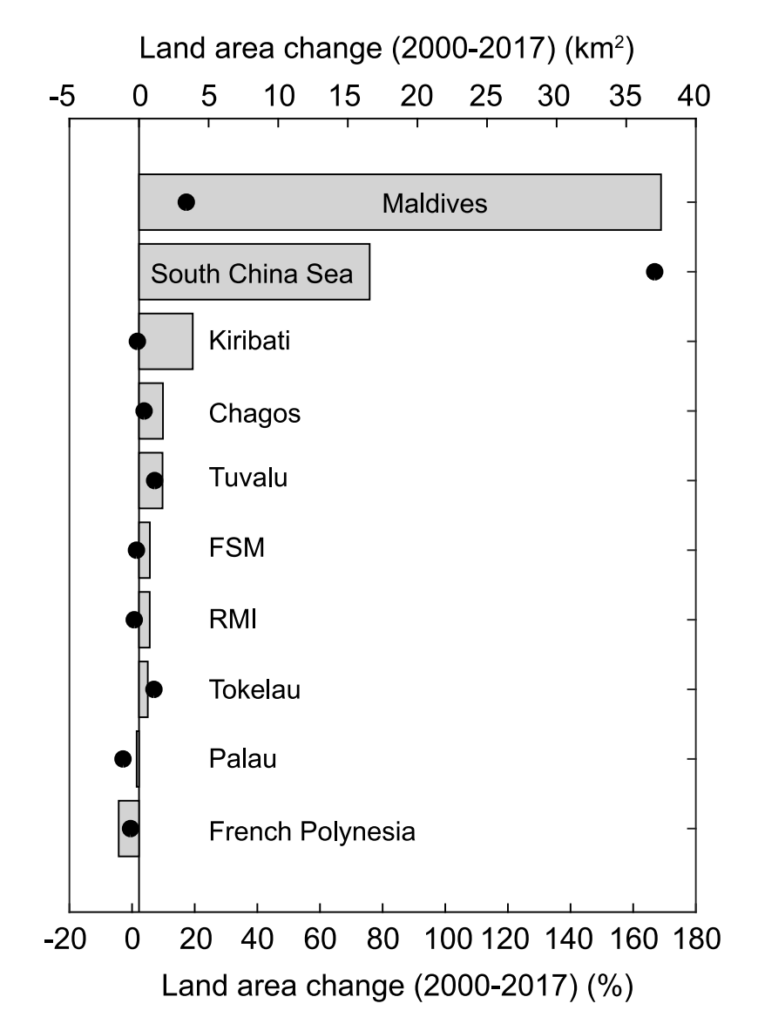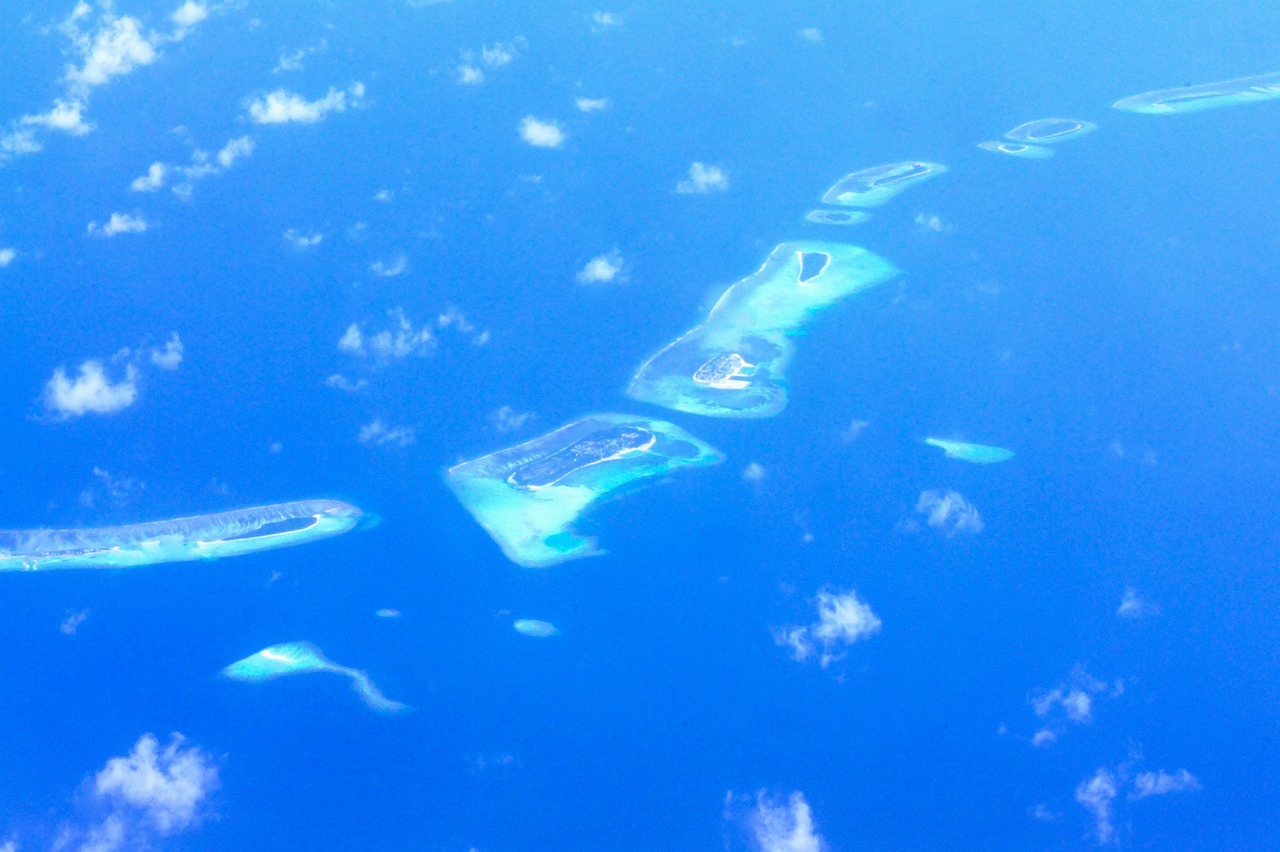Low-lying island states have become a major symbol of the urgency of global climate talks. In 2009, Mohammed Nasheed, President of the Maldives, held an underwater cabinet meeting as a stunt to highlight what he believed the perilous situation his country faced, ahead of that year’s UNFCCC COP meeting in Copenhagen.

But evidence that sea level rise, driven by global warming and climate change, is impacting such small islands is far less robust than activists claim. A 2021 study of satellite images and survey of the scientific evidence found that, in fact, the Maldives and other island states had increased in area in recent decades.
Despite concerns of erosion driven by sea level rise, no published evidence exists of pervasive erosion of atoll islands at a global scale. Existing studies of atoll island change have been based on small, temporally sparse samples of islands on a limited number of atolls. As a result, the global response of atoll islands coincident with sea level rise remains uncertain. Using rich collections of Landsat imagery, this study analyses changes in land area on 221 atolls in the Indian and Pacific Oceans. Results show that, between 2000 and 2017, the total land area on these atolls has increased by 61.74 km2 (6.1 %) from 1007.60 km2 to 1069.35 km2. Most of the change in land area resulted from island building within the Maldives and on atolls in the South China Sea. Since 2000, the Maldives have added 37.50 km2 of land area, while 16.57 km2 of new islands have appeared within the South China Seas Spratly and Paracel chains.
Just two of the island states studied showed loss of area.

A slightly earlier study suggested that due to the nature of the way they are formed, many islands of this kind may not be vulnerable to sea level rise at all:
…emerging data suggest that different island types, in contrasting locations, have formed under different conditions in relation to past sea level. Uniform assumptions about reef island futures under sea level rise may thus be inappropriate.
It seems that fears about islands sinking beneath the oceans does not have the backing of strong evidence.
